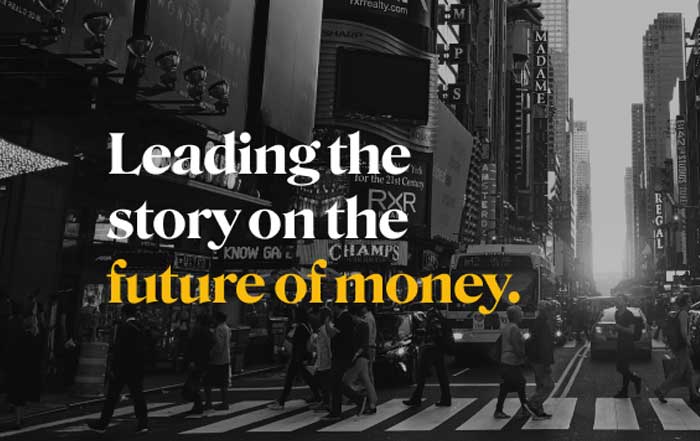The financial technology (fintech) sector has experienced exponential growth globally, driven by the demand for innovative financial solutions that cater to an increasingly digital world. Latin America, known for its vibrant economies and burgeoning tech ecosystems, has become a key player in this arena. The region’s fintech industry is transforming the financial landscape by providing solutions that enhance financial inclusion, improve transactional efficiency, and meet the evolving needs of consumers and businesses alike. As fintech grows, several companies in Latin America, particularly those listed on regional stock exchanges, have carved out significant roles in this space. Today we will review some of the largest companies currently listed on Latin American stock exchanges that have made fintech a key component of their business models.
MercadoLibre (NASDAQ: MELI)
One of the most well-known companies in the Latin American fintech space is MercadoLibre, an e-commerce giant headquartered in Argentina. Although MercadoLibre is listed on the Nasdaq, its operations are deeply rooted in Latin America, where it dominates online retail in countries such as Argentina, Brazil, and Mexico. Over the years, MercadoLibre has diversified its offerings beyond e-commerce and has made substantial investments in fintech.
Mercado Pago, the fintech arm of MercadoLibre, is a digital payment platform that allows users to conduct online transactions, transfer money, and make payments via mobile devices. Mercado Pago operates as a comprehensive financial service provider, offering everything from mobile wallets and online payment gateways to credit and debit card processing. This service is critical in markets where banking penetration is low, and cash is still a dominant form of payment.
MercadoLibre’s integration of fintech into its business model has significantly contributed to its growth. As the company continues to expand Mercado Pago’s presence across Latin America, it has seen substantial revenue growth from its fintech services. In regions like Brazil, where digital payments are rapidly replacing traditional methods, MercadoLibre’s fintech division is well-positioned to capture even more market share.
PagSeguro Digital (NYSE: PAGS)
Another key player in the Latin American fintech landscape is PagSeguro Digital, a Brazilian financial services and digital payments company listed on the New York Stock Exchange. While PagSeguro’s primary focus has been on payment processing and point-of-sale (POS) systems for small and medium-sized enterprises (SMEs), the company has expanded into various fintech services.
PagSeguro offers a range of digital wallets, online banking services, and mobile payment solutions that cater to both individuals and businesses. Its POS devices are popular among entrepreneurs and small business owners across Brazil, offering an affordable and efficient way to process transactions. PagSeguro’s innovative approach to digital payments has resonated with customers, particularly in regions where traditional banking services are often costly and inaccessible.
The company's growth has been driven by its ability to offer services that meet the specific needs of Brazil's diverse economic landscape. With a focus on empowering SMEs and increasing financial inclusion, PagSeguro is a critical player in Brazil’s fintech revolution. Its IPO in 2018 was one of the largest ever by a Latin American fintech company, marking a milestone in the region’s fintech evolution. As digital payments continue to grow in popularity, PagSeguro is poised to maintain its leadership position in the Brazilian fintech sector.
StoneCo (NASDAQ: STNE)
StoneCo is another Brazilian fintech giant that has gained international recognition and is listed on the Nasdaq. Specializing in payment processing and merchant services, StoneCo provides technology-driven financial solutions for businesses across Brazil. Similar to PagSeguro, StoneCo’s business model is centered around providing POS solutions, payment gateways, and fintech services to small and medium-sized enterprises.
StoneCo’s technology infrastructure allows it to offer businesses a seamless way to process payments, manage transactions, and access credit. The company has developed a suite of digital tools that help businesses manage their finances, track sales, and grow their operations. Its digital payment solutions have been particularly popular among merchants who want to transition from cash-based systems to electronic payments.
One of the unique aspects of StoneCo’s business model is its focus on data analytics and business intelligence. The company uses data collected from its payment processing systems to offer insights and personalized services to its clients. This approach has enabled StoneCo to build long-term relationships with its customers, ensuring that they have the tools needed to thrive in Brazil’s competitive market. As Brazil continues its shift towards a cashless society, StoneCo’s fintech offerings will likely play a significant role in shaping the future of commerce in the region.
Major Latin American Fintech Companies
Nubank (B3: NUBR33, NYSE: NU)
Nubank, founded in 2013, is one of the most significant success stories in Latin American fintech. Initially launched as a digital credit card provider, the Brazilian company quickly expanded its range of services to include personal loans, digital banking, and investment products. Nubank is listed both on Brazil’s B3 stock exchange and the New York Stock Exchange, reflecting its growing international presence.
Nubank’s appeal lies in its user-friendly mobile app, which allows customers to open accounts, apply for credit, and manage their finances without ever stepping into a bank branch. This fully digital approach has been a game-changer in Brazil, where traditional banking can be cumbersome and expensive. By offering no-fee credit cards and low-cost banking services, Nubank has attracted millions of customers, particularly younger consumers who are more comfortable with digital banking.
In addition to its consumer services, Nubank has also developed products for businesses, including digital payment solutions and SME financing. As of 2024, Nubank continues to grow rapidly, both in terms of customer base and financial performance. Its successful expansion into other Latin American markets, including Mexico and Colombia, has cemented its reputation as a fintech powerhouse. With an increasing emphasis on innovation and financial inclusion, Nubank is set to continue its leadership in the region’s fintech sector.
Grupo Aval (BVC: PFAVAL)
Grupo Aval, based in Colombia, is one of the largest financial conglomerates in Latin America and is listed on the Colombian Stock Exchange (BVC). While primarily known for its traditional banking services, Grupo Aval has made significant strides in fintech, particularly through its subsidiary Movii, a digital wallet and neobank that is revolutionizing financial services in Colombia.
Movii provides users with a range of fintech services, including mobile banking, digital payments, and peer-to-peer transfers. It also enables users to pay bills, top up mobile phones, and purchase goods and services online. What sets Movii apart is its focus on financial inclusion, targeting underserved populations who may not have access to traditional banking. Through partnerships with government agencies and private companies, Movii has played a crucial role in expanding access to financial services for low-income and rural communities.
Grupo Aval’s move into fintech is part of a broader trend among traditional financial institutions in Latin America, where banks are increasingly investing in digital solutions to stay competitive. By leveraging technology, Grupo Aval is positioning itself as a leader in both traditional banking and fintech, offering services that meet the diverse needs of Colombia’s growing digital economy.
Credicorp (NYSE: BAP)
Credicorp, Peru’s largest financial services company, is a key player in the fintech sector in Latin America. Listed on the New York Stock Exchange, Credicorp has embraced fintech as part of its broader strategy to modernize its operations and enhance its service offerings. Through its subsidiaries, such as Mibanco and BCP, Credicorp has developed a range of digital financial products that cater to both individual consumers and businesses.
Mibanco, Credicorp’s microfinance subsidiary, has been at the forefront of fintech innovation in Peru. By offering digital loans, mobile banking services, and financial education programs, Mibanco has helped increase financial inclusion among low-income individuals and small businesses. The company’s fintech solutions have been particularly valuable in rural areas, where access to traditional banking services is limited.
In addition to its work in microfinance, Credicorp has invested heavily in digital banking and payment solutions. The company’s mobile banking app, Yape, has gained widespread popularity in Peru, allowing users to make digital payments, transfer money, and pay bills with ease. As fintech continues to reshape the financial landscape in Peru, Credicorp’s forward-thinking approach will likely keep it at the forefront of this transformation.
Itaú Unibanco (B3: ITUB3, NYSE: ITUB)
Itaú Unibanco, one of the largest banks in Brazil and Latin America, has also made significant investments in fintech. Listed on both the B3 stock exchange in Brazil and the New York Stock Exchange, Itaú Unibanco has developed a wide range of digital products aimed at enhancing its customer experience and expanding financial inclusion.
Itaú’s digital banking platform offers customers the ability to open accounts, manage their finances, apply for loans, and invest in various financial products—all through a mobile app. The bank has also developed iti, a digital wallet that allows users to make payments, transfer money, and purchase goods and services without needing a traditional bank account.
Itaú’s commitment to innovation extends beyond its own operations. The bank has invested in several fintech startups and has formed strategic partnerships with technology companies to develop new digital solutions. These initiatives are part of Itaú’s broader strategy to remain competitive in an increasingly digital financial landscape. As fintech continues to grow in importance, Itaú’s strong presence in both traditional banking and digital finance makes it a key player in Brazil’s financial ecosystem.
Banorte (BMV: GFNORTEO)
Banorte, one of the largest financial institutions in Mexico, is listed on the Mexican Stock Exchange (BMV) and has a significant presence in the fintech space. The bank has embraced digital transformation as a core component of its business strategy, investing heavily in technology to enhance its service offerings and improve customer experience.
Banorte’s fintech initiatives include Banorte Móvil, a mobile banking app that allows customers to manage their accounts, make payments, and transfer money with ease. The app has been widely adopted across Mexico, helping to drive the country’s shift towards digital banking. In addition to its consumer services, Banorte has developed fintech solutions for businesses, including digital payment gateways and SME financing platforms.
Banorte’s leadership in fintech is also reflected in its partnerships with technology companies and fintech startups. These collaborations have allowed the bank to offer innovative products and services that meet the evolving needs of Mexico’s diverse financial market. As digital banking continues to grow in popularity, Banorte’s fintech offerings will likely play a key role in shaping the future of finance in Mexico.
Wrapping Up
The fintech sector in Latin America is rapidly evolving, and many of the region’s largest companies are at the forefront of this transformation. Whether through digital payment solutions, mobile banking, or innovative financial products, these companies are reshaping the financial landscape and driving economic growth. As fintech continues to expand, companies like MercadoLibre, Nubank, PagSeguro, and others will play an increasingly important role in delivering financial services to millions of people across Latin America. The future of fintech in the region looks promising, with these companies leading the charge towards a more inclusive and technologically advanced financial system.










